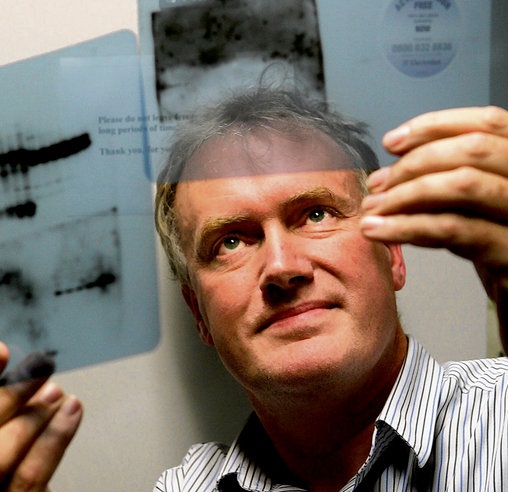First and foremost, a very warm welcome to Ireland’s leading university. A university even people outside of Ireland have heard of. You can be rightfully proud of yourself having come through the meat machine of the Leaving Certificate, a rite of passage in Ireland that is now behind you. Job done.
A tremendous vista now opens up for you as you embark on the next part of your journey through this absurd carbon-based thing called life. Unlike in the Leaving Certificate, the assumption is that you are an adult. It will now be much more up to you. You can even decide not to go to lectures if you want, although that might be ill-advised. This new-found sense of freedom can leave you anxious. If your parents keep on asking you how you are, you might even feel a little irritated. Be gentle with them as they’re just worried about you. Kindly tell them to mind their own business, unless of course you need their money. They are of a generation more frightened than you. They have invested a huge amount of their emotional and intellectual energy in you, but it’s time for you to ignore them and tell them to get a life. Over-parenting is a disease of our time and you need to help your parents escape it.
You will hopefully have chosen a subject that is of great interest to you, or at least has the makings of one. This is the most important thing, as otherwise you will be miserable and you won’t succeed. A key thing to do is to follow Dwayne’s advice from Little Miss Sunshine: “Do what you love and fuck the rest.” There will be times of course when you will be miserable for a whole host of reasons.
You can be rightfully proud of yourself having come through the meat machine of the Leaving Certificate, a rite of passage in Ireland that is now behind you. Job done
The big advantage of difficulty is that it builds great friendships and camaraderie. There is nothing like bonding over mutual hatred of one of your lecturers or a failed exam. In the coming months, you will make friends who will remain friends for the rest of your life. If you stick at it, you will be pleasantly surprised. A day will come when suddenly something clicks and you will say “Wow! That’s amazing!”. Usually this happens after a few drinks on a Friday evening in the Pav. It might also happen during a lecture, or when you’re reading something or talking to someone. Obviously you need to get a good set of notes from lectures to use when studying for exams, but read, read, read. Anything from textbooks or popular books relevant to your course, to articles in magazines and papers. Be voracious. The lectures are really only a guide to the curriculum.

A diagram, included at Prof Luke O’Neill’s request.
Don’t be afraid to approach your lecturers – they want to help you and they want the best for you. You now have a chance to engage with some of the world’s best in their subject. Trinity has internationally renowned staff who have discovered things that are now in your textbooks. A critical thing to remember is that universities have two missions – to teach and to do research. Research means adding to the body of knowledge we have in a given subject. Teaching and research go hand in hand. I have a passion for immunology. I do research in immunology where I try to find out what goes wrong in our immune systems with diseases like rheumatoid arthritis and multiple sclerosis. I spend the majority of my time leading a research group with postgraduate students (most of whom are studying for a PhD) and postdoctoral scientists (people who already have a PhD).
In your final year you might get to spend time in my lab doing research, as a research project will be a part of your degree. Your goal will be to make a contribution to knowledge itself, which is desperately needed. But apart from research, I love to tell you all about what interests me. That means teaching you biology first, and then as you advance through the years, the parts of biology in which I’m particularly interested – biochemistry and immunology. Disclaimer: I am trying to brainwash you into joining me in my grand adventure. So watch out, we’re all trying to brainwash you into our subject. But it’s entirely up to you by whom you want to be brainwashed.
A university should be a haven, a mother (hence the term alma mater) and an oasis of learning and research. A place apart, which “sticks it to the man”
Evelyn Waugh the great English writer once said there were only two grades worth getting at university – a first (the top grade) or a third (barely a pass). I will paraphrase him – a first means you are really good, a 2.1 means you tried but probably shouldn’t have bothered, a 2.2 means you’re not that good (at least at the subject you’ve been studying), but a third, well, that means you had a damn good time. In these troubled times (and remember all times are troubled, but usually for different reasons) a university should be a haven, a mother (hence the term alma mater) and an oasis of learning and research. A place apart, which “sticks it to the man”.
Remember, universities have lasted a long time so they must be doing something right. Out of 50 institutions in Europe that have lasted more than a 1,000 years, 47 are universities, the other three being the Catholic Church and two obscure legal institutions in Italy. Universities will outlive Google, Facebook and maybe even God. You are in a place that is part of a tradition that stretches back a very long time and that has survived because its mission is still relevant, in fact, is now more relevant than ever.
You are the lifeblood of a community that accepts everyone, where gender, orientation, race, creed and economic background are all irrelevant. A place that thrives on diversity. Because diversity means new ideas. What counts is your ability and interest. Everyone who has come through Front Gate into the majesty of Front Square at the start of their first year has that curious mix of anxiety and excitement. But most look back on their time in Trinity with one thought: These were the best days of your life.
Luke O’Neill is Professor of Biochemistry in Trinity and a Fellow of the Royal Society.







